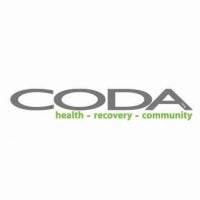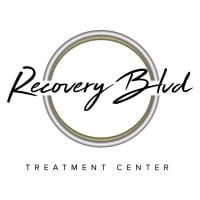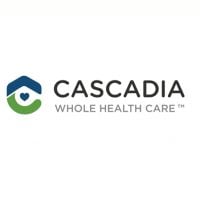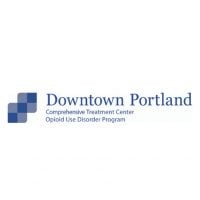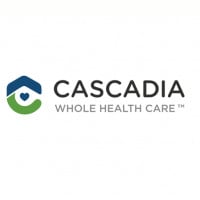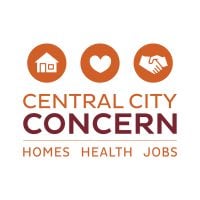Quest Center for Integrative Health
Drug Rehab Center in Portland, Oregon
The Quest Center for Integrative Health is an addiction treatment facility located in Portland, OR that has been offering evidence-based practices such as cognitive behavioral therapy (CBT) and Dialectical Behavioral Therapy (DBT) to help individuals and families struggling with alcoholism and drug addiction since 1989.
About This Portland, OR Facility
Quest Center for Integrative Health is an Addiction Treatment Facility located in Portland, Oregon. Founded in 1989, this facility offers a comprehensive range of services to individuals struggling with alcoholism, dual diagnosis, opioid addiction, substance abuse, and drug addiction. With a strong commitment to holistic healthcare, Quest Center for Integrative Health integrates conventional western medicine with alternative therapies to provide a well-rounded approach to addiction treatment. They offer various levels of care including aftercare support, detoxification programs, outpatient services, intensive outpatient programs, partial-hospitalization programs, and residential treatment options. Committed to providing personalized care and support, they also accept private health insurance.
Quest Center for Integrative Health in Portland provides a wide range of services to cater to the needs of individuals dealing with addiction and substance abuse. Their treatment methods incorporate both conventional medicine and alternative therapies that focus on the overall well-being of individuals. By combining evidence-based practices with integrative health approaches such as acupuncture, chiropractic care, massage therapy, and yoga, Quest Center offers a holistic approach to recovery. They offer detoxification programs to help individuals safely manage withdrawal symptoms and prepare for further treatment. Their outpatient services provide counseling and support to assist individuals in their recovery journey while allowing them to continue their daily lives. Additionally, for those requiring more intensive care, they offer intensive outpatient and partial-hospitalization programs that involve group therapy sessions centered around relapse prevention strategies and individualized treatment planning. Through their diverse range of services and commitment to personalized care, Quest Center seeks to support individuals on their path towards lasting recovery from addiction and substance abuse issues.
Genders
Ages
Modality
Additional
Conditions and Issues Treated
Recovering from any type of substance abuse is a long process, but it is one of the most worthwhile and life changing events any addicted person will ever go through. This is a combination of detoxing the body, rehabilitation, and recovery. There is also therapy, aftercare, and support during the entire process.
While substance abuse can take over a person’s life, it is something that can also be overcame by professionals at Quest Center for Integrative Health in Portland, OR
With so many people struggling with opioid addiction, opioid addiction treatment is more critical than ever before. Patients often take opioids when they face a painful injury. When someone begins taking opioids such as Vicodin or oxycodone differently than how the medications were prescribed, this points to opioid addiction.
Stopping these types of medications abruptly is not safe. That is where opioid addiction treatment at Quest Center for Integrative Health in Portland, OR comes in. Most opioid addiction treatment facilities start with detox and move to rehabilitation services while providing medical support during the process.
Getting over an opioid addiction takes time and determination, but with the right support and resources, those struggling with opioid addiction can recover and move forward with their lives.
Addiction is often caused by an underlying issue. Mental illnesses like schizophrenia, bipolar disorder or anxiety disorder could lie at the root. A dual diagnosis by Quest Center for Integrative Health aims to treat the addiction as well as the cause of the addiction. This ensures the patient will not fall back on old ways after treatment is complete.
Levels of Care Offered
This center offers a variety of custom treatment tailored to individual recovery. Currently available are Aftercare Support, Detox, Drug Rehab, Dual-Diagnosis, Intensive Outpatient, Outpatient, Partial-Hospitalization, with additional therapies available as listed below.
Detox is a drug rehab process that begins before the actual drug rehab treatment. It is used to remove any residual toxins left in your body (and brain) after using drugs, and it is used with the intent to help you or your loved one complete drug rehab.
If you are addicted to opiates like heroin, methadone, or prescription painkillers, you will detox with medication. This is because the withdrawal symptoms are often more intense and uncomfortable for an opiate addict than for someone who has abused or is dependent on other drugs, like cocaine.
Detox alone will not make you stop using drugs; it is a process that allows you or your loved one to get ready for the next step of rehab.
Intensive Outpatient Programs (IOPs) are treatment programs suitable for people who wish to stay at home while undergoing treatment. IOPs like Quest Center for Integrative Health make it possible for individuals to carry on with their responsibilities at work or school, in or near Portland, OR. It’s easy to find an IOP center that offers individualized treatment protocols.
Outpatient treatment can be considered the lowest intensity level of addiction treatment in Portland, OR. It is ideal for early phase addiction or lower intensity addictions. Quest Center for Integrative Health peer group support, 12-step programs, and individual counseling may still be involved.
Partial hospitalization programs offer another level of addiction treatment at Quest Center for Integrative Health. It is another way to receive a significant amount of treatment while decreasing the time commitment and cost. It can be a good option for stepping down from inpatient treatment in anticipation of a fully independent life in Portland, OR.
Aftercare support plays an important role when sustaining a patient’s full recovery at Quest Center for Integrative Health. Patients also receive assistance in making living arrangements in halfway houses. Career counseling is available for those who want a fresh start. There are also local community programs in Portland, OR such as Alcoholics Anonymous.
Quest Center for Integrative Health‘s Therapies & Programs
Individual professional counseling or individual therapy refers to the one-on-one interaction between a patient and his or her counselor. Individual therapy allows for more privacy, one that group interactions can’t provide. Therefore, it becomes easier for a person to unload and become more open to his or her counselor.
Another benefit of individual therapy at Quest Center for Integrative Health in Portland, OR is that all sessions aim to speed up a single person’s progress. It makes it easier for the counselor and the patient to deal with the central issues, which are likely the culprits of substance addiction.
Once the roots of the problems are addressed, it becomes less challenging for a recovering patient to maintain sobriety and brush off temptations.
Families are not always as supportive as they could be, but by opting for family therapy, many recovering addicts are able to understand their addiction and get the support they need to get sober. These therapy sessions at Quest Center for Integrative Health in Portland, OR involve all members of the family who play a role in the recovering person’s daily life. They work together to overcome past issues, avoid triggers, and remain strong and supportive of each other.
In group therapy, the patient undergoes sessions with other patients dealing with similar problems under the guidance of a trained counselor. The members of the group interact with each other and talk freely about their issues. The recovery of members of the group from the problems that they face gives the patients confidence that they can also overcome their addiction.
Group therapy at Quest Center for Integrative Health reduces the feeling of loneliness and improves the coping skills of the patients. Group therapy provides patients with continuous feedback from other members. The group dynamics ensure that members start having some structure and routine in their lives.
Dialectical behavior therapy (DBT) is a method of individual and/or group counseling that focuses on acceptance and change. DBT can be very effective in developing coping strategies for negative emotions.
Cognitive behavioral therapy (CBT) is a way of addressing concerns through talking. Talking through issues can identify sources of discomfort or unhealthy thoughts. CBT is a healthy way Quest Center for Integrative Health addresses some behaviors which may be bringing unintended consequences in a persons life.
Rational Emotive Behavior Therapy (REBT) is a type of cognitive therapy. It is based on the principle that irrational thoughts are responsible for the emotional and behavioral changes in addiction. The therapy starts with identifying the underlying irrational thoughts. These thoughts are then challenged and opposed logically and then replaced with positive thoughts.
Eye Movement Desensitization and Reprocessing (EMDR) therapy is different from the traditional treatment that helps patients recover from substance abuse. Research shows that the root cause of substance abuse in many patients is the negative feelings and emotions that are associated with some past trauma. In EMDR therapy, therapists make the patients recollect such traumatic events while stimulating their vision.
The rapid eye movements reduce the patients’ negative feelings related to the trauma and promote calmness and relaxation. EMDR therapy is combined with behavioral therapies to address the root cause of the problem, which reduces the chances of relapse at a later stage.
The 12 step program is the treatment method used by Alcoholics Anonymous, but it can apply to any type of addiction. It outlines the 12 steps addicts should take on the path to recovery. Steps include admitting you have a problem and making the decision to turn your life around. A belief in a higher power and making amends to others are also part of the program.
Nutrition therapy involves providing healthy diet and improving the eating habits of the patient. Expert dieticians provide individualized meal plan, that addresses the specific nutritional deficiencies. Nutrition therapy also teaches the associated life skills such as cooking healthy food and grocery shopping. It helps to overcome the food cravings that are seen in certain addictions.
NRT, also known as nicotine replacement therapy, allows someone to get the effects of nicotine without chewing or smoking. It is often done with a patch, allowing those who want to quit relying on nicotine to better manage their cravings. As the cravings get easier to manage, the doses of nicotine get reduced until nicotine is no longer needed.
Patient Experience
Fitness Therapy
More often than not, treating substance addiction requires different types of therapies carried out simultaneously to cover all the bases and the patient’s needs. One of the most encouraging and exciting treatment methods is fitness therapy. In fitness therapy, patients inject movements into regular counseling sessions at Quest Center for Integrative Health in Portland, Oregon. It has physical, mental, and emotional benefits.Not only do individuals become more driven and goal-oriented, but they also experience an increase in strength and flexibility. In some cases, fitness therapy aids in healing various physical ailments on top of hastening the addiction recovery process. Exercising can also help enhance the cognitive functions of the brain and improve attention span. Physical exercise also alleviates the craving for addictive substances as it provides your mind and body with a healthier alternative.
Payment Options Accepted
For specific insurance or payment methods please contact us.
Is your insurance accepted?
Ask an expert, call (888) 674-0062
Additional Details
Specifics, location, and helpful extra information.
Portland, Oregon 97214 Phone Number(503) 238-5203 Meta DetailsUpdated November 25, 2023
Staff Verified
Patient Reviews
There are no reviews yet. Be the first one to write one.
Portland, Oregon Addiction Information
Oregon’s drug abuse rates are higher when compared to other states in the country, and currently ranks 5th in the nation for drug-related health issues. Marijuana and prescription opioids are among the top drugs most often abused by teenagers in Oregon. Alcohol abuse in the state is also higher than average; over 6.25% of residents abuse alcohol every year.
The drug addiction problem in Portland, OR, is relatively inadequate. Over 124,000 people in Portland reported using illicit drugs in the past month of 2014. Additionally, over 2,200 people in Portland died from drug overdoses in 2016. Drug addicts often turn to crime to get money to buy drugs, which can negatively impact the community. There are many types of treatment available in Portland including inpatient and outpatient care and 12-step programs.
Treatment in Nearby Cities
- Lebanon, OR (69.5 mi.)
- Umatilla, OR (161.3 mi.)
- Springfield, OR (103.9 mi.)
- Dallas, OR (53.3 mi.)
- Bend, OR (120.3 mi.)
Centers near Quest Center for Integrative Health
The facility name, logo and brand are the property and registered trademarks of Quest Center for Integrative Health, and are being used for identification and informational purposes only. Use of these names, logos and brands shall not imply endorsement. RehabNow.org is not affiliated with or sponsored by Quest Center for Integrative Health.


